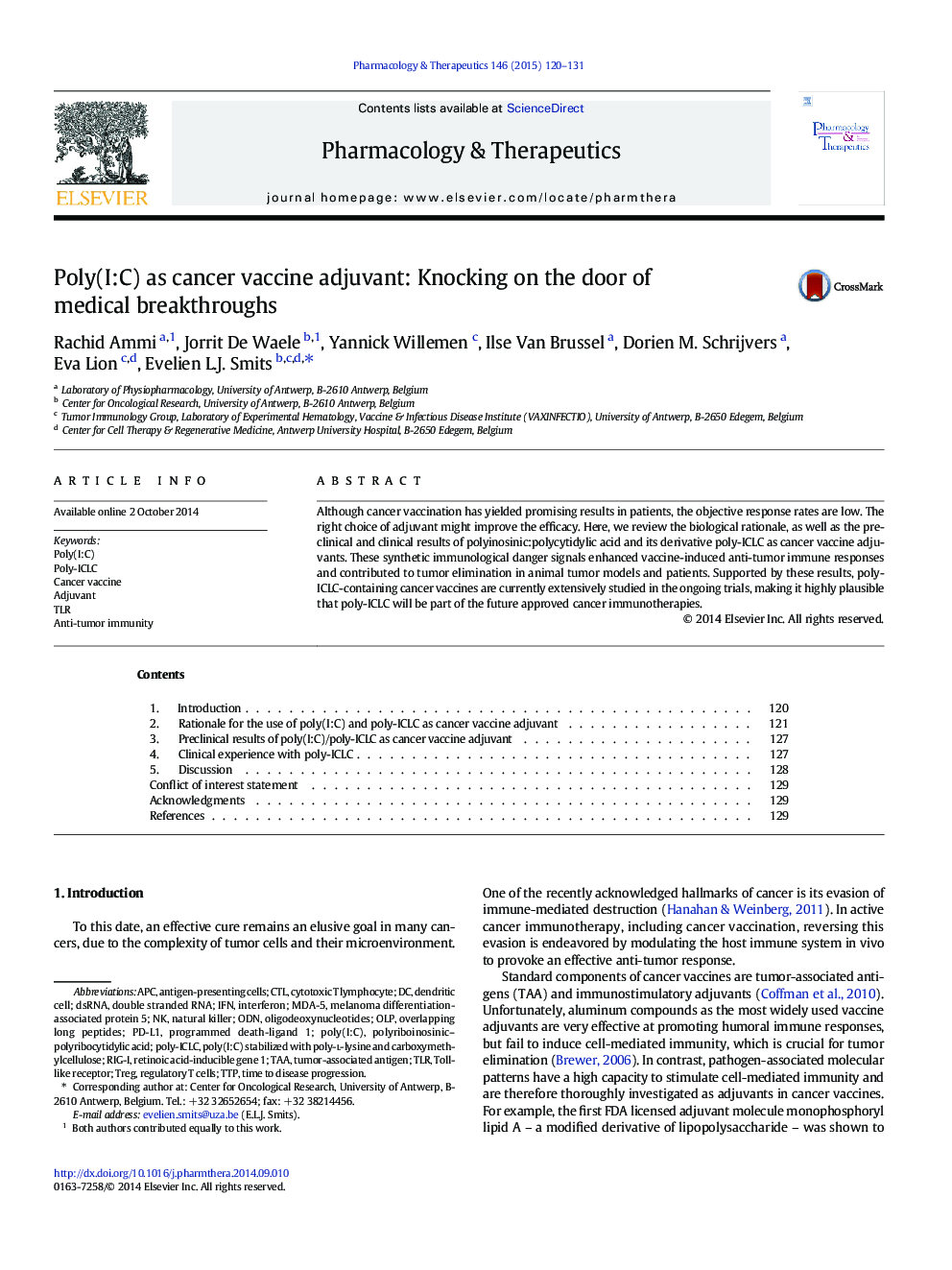| Article ID | Journal | Published Year | Pages | File Type |
|---|---|---|---|---|
| 2563136 | Pharmacology & Therapeutics | 2015 | 12 Pages |
Abstract
Although cancer vaccination has yielded promising results in patients, the objective response rates are low. The right choice of adjuvant might improve the efficacy. Here, we review the biological rationale, as well as the preclinical and clinical results of polyinosinic:polycytidylic acid and its derivative poly-ICLC as cancer vaccine adjuvants. These synthetic immunological danger signals enhanced vaccine-induced anti-tumor immune responses and contributed to tumor elimination in animal tumor models and patients. Supported by these results, poly-ICLC-containing cancer vaccines are currently extensively studied in the ongoing trials, making it highly plausible that poly-ICLC will be part of the future approved cancer immunotherapies.
Keywords
Related Topics
Health Sciences
Pharmacology, Toxicology and Pharmaceutical Science
Pharmacology
Authors
Rachid Ammi, Jorrit De Waele, Yannick Willemen, Ilse Van Brussel, Dorien M. Schrijvers, Eva Lion, Evelien L.J. Smits,
